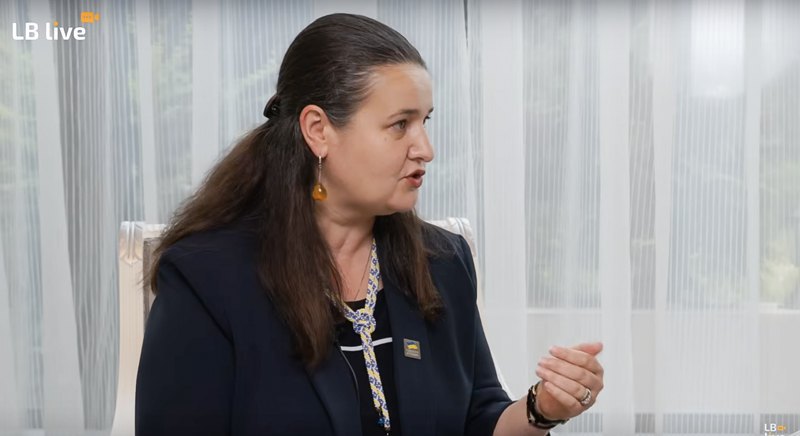It is already known that Olga Stefanishyna will be the next Ukrainian ambassador to the United States. We will summarise the results of your five years in office later, but for now, I would like to ask: what are the main challenges you will pass on to Stefanishyna? Considering the political situation in the United States, as well as its duration.
I would even say that I am not passing on a legacy, but rather challenges that we are working on together, because Ms. Olga is now the authorised representative (the President's Special Representative for Cooperation with the United States — S.K.) and we have already begun to work actively on them together. But in reality, the formula for our success, which will lead to our victory, remains unchanged: more weapons and aid to Ukraine, more sanctions and isolation for Russia.
While with the previous administration we worked on additional budgets and aid, now we are working very hard on various agreements, on the purchase of weapons, on how to actually achieve our goal, perhaps through other instruments, perhaps through other agreements. But, of course, our defenders need weapons. And that is the number one priority. I hope that the United States will, as always, be the leader on all these issues.
We see that the current US leadership's attitude towards Ukraine has changed dramatically. Obviously, there is no simple answer to the complex question: why? Was it just because of the phone call between Trump and Putin, or, as the German Foreign Minister says, did Mr. Merz influence Trump's position after all? Let's at least try to identify the main factors behind the changes.
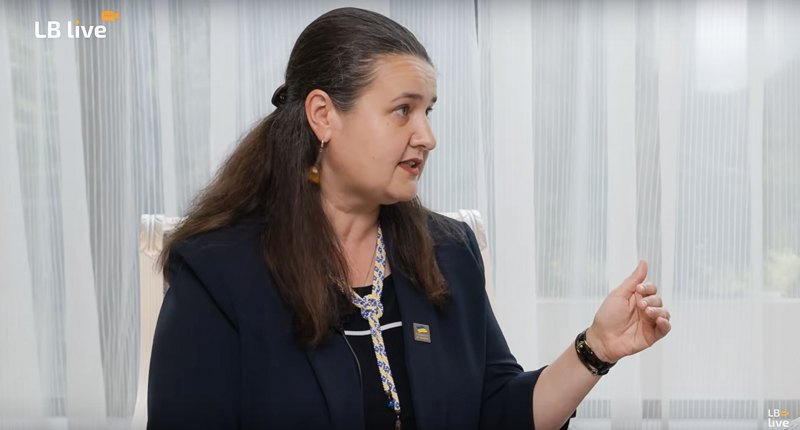
We will hear a lot; perhaps our partners will say that it was their call, their conversation, their meeting that played a role here. Maybe so; maybe not. We will never know for sure. But the real picture is that, first of all, we still had votes in the Senate and the House. Our bipartisan support has not gone anywhere.
Yes, at the beginning of any administration, any party pays attention to what its leader says. Therefore, President Trump's position was very important and remains so. During this time, communication with all our friends and our constructiveness were properly established.
Look, we responded this way to all of President Trump's initiatives. Regardless of whether they understood whether they would achieve results immediately or not. A complete ceasefire — yes. Any modalities for a partial cessation of the war — definitely. Negotiations in any format — our delegation was there. A personal meeting between the leaders — our president was there on the day it was discussed. Putin did not come. And I think that even for those who did not follow the situation in Ukraine — unfortunately, this also happens — for those who were not involved and were not in the context of our war, it became obvious: we did not start it, we are not the problem, we do not want peace.
Therefore, I think that these constant actions, which show what Russia is doing, the dissemination of the truth and our constructive position — all this is moving in the right direction. Of course, our partners are very helpful here.
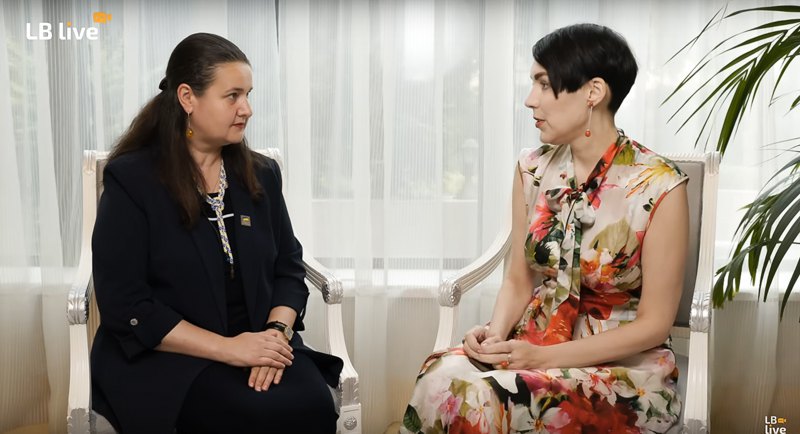
To what extent does Trump's apparent change of heart extend to the American political elite? And how lasting is this effect? Well, give or take. After all, Trump is, to put it politely, a man of moods.
From my first day in office, the goal was very simple: to build strong bipartisan support between our countries. Not between administrations, not between parliaments, but between countries. That is why this work continues at all levels. We have cooperation with the administration, with Congress, regional cooperation, which is very important. This has always been a priority for me.
We work with the ‘big seven’ in America. These are seven organisations that represent regional authorities: from the Governors' Association to the Conference of Mayors, to the Conference of Counties, and so on. We conclude agreements between our regions and states, etc. In other words, our task is to build and expand support, but with the whole of America. Regardless of the administration, this should be the desire of voters, ordinary Americans, and the understanding that we, our victory, we as a country are extremely important to America as a strategic partner.
Remember what happened four years ago. We were a completely insignificant country for the United States. And where we are now is thanks to our defenders; thanks to the fact that we impressed the whole world with our ability to fight for freedom; thanks to the president and numerous diplomatic efforts.
There is another important point. President Trump talked a lot about Ukraine during his election campaign. He was unable (which was obvious to us, but apparently unclear to everyone outside Ukraine) to quickly end the war. And now he needs, roughly speaking, to somehow get out of this situation — to work with this narrative.
No, President Trump did not talk much about Ukraine during his election campaign. Ukraine was not in the top 3, top 5, or even top 10 issues that were discussed at the time. Therefore, he does not need to answer this question for his voters. His voters expect answers to other questions — from emigration to the economic situation. We are following the Ukrainian agenda. Therefore, there is no such problem, which we think exists. At the same time, this is our opportunity.
We had a wonderful meeting between President Trump (then still a presidential candidate — S.K.) and President Zelenskyy in September 2019. Then...
Then there was the Oval Office...
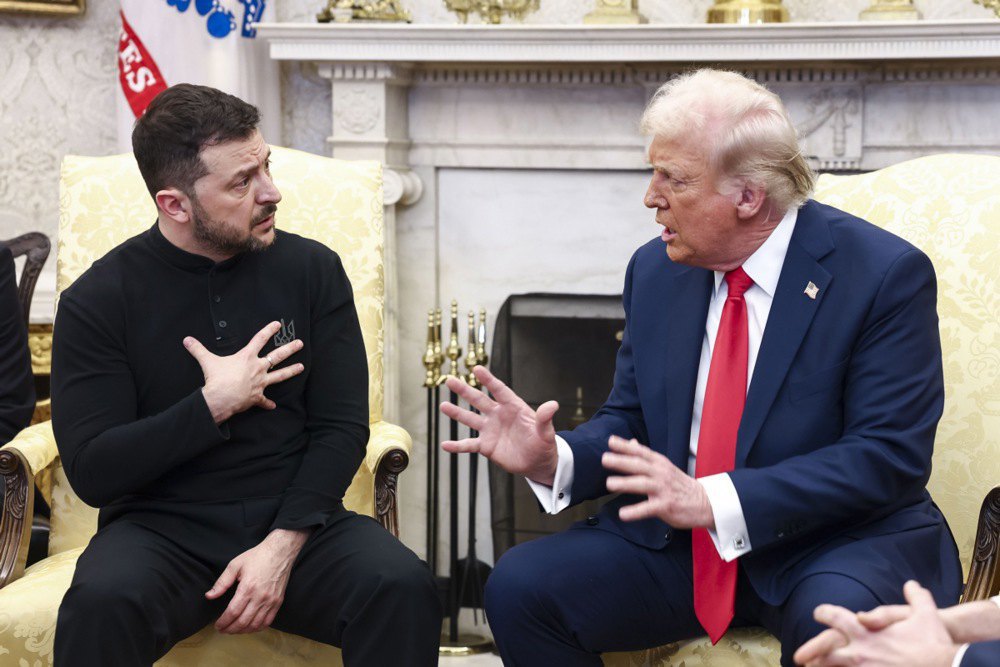
... There were difficult meetings at the beginning of this term (Donald Trump's term — S.K.). And all these discussions, even difficult ones, are actually a plus for us, because an honest position and honest explanation of the situation — what is happening with us — each of them is a small step towards moving in the right direction.
Trump threatened that if a peace agreement is not reached within 50 days, tough sanctions will be imposed on Russia. This deadline expires in early September. Is there any certainty that the promises will be kept, given that this is economically very disadvantageous for the United States?
Anyone who tells you they know is lying. No one knows. But that does not change our priority. Our priority is to increase sanctions against Russia. Our priority is comprehensive sectoral sanctions against all Russian banks. This is a very important sanction that will not only stop Russia, but also prevent those who are currently buying and selling a lot to Russia — including India, China and others — from exposing their banking systems to danger. These are comprehensive sanctions on oil and gas, which are sources of income for the Russian budget.
And there are many things we are working on. There is a bipartisan bill in the Senate and Congress, and it has tremendous support in the House. Eighty-five senators are co-sponsors of this bill.
Whether it will be in 50 days or 10 days, we constantly say that if President Trump wants to be successful in achieving peace, and we strongly support him in this, if we want Russia to truly negotiate with us, these sanctions are necessary. We need to show the United States that sanctions are needed as soon as possible and that we need weapons as soon as possible. This will convince the Russian Federation — an aggressor, a terrorist country — that they cannot sit it out, wait it out and ultimately prevail in their aggressive actions.
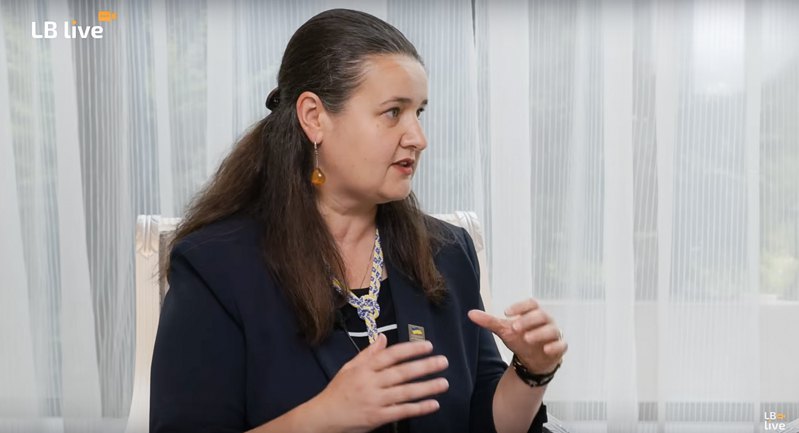
You mentioned another support package. At the same time, President Trump said that European partners will buy $100 billion worth of American weapons for Ukraine. According to our information, the Verkhovna Rada (I think that by the time this interview is published, this appeal will already have been made public) will soon request additional Patriot systems and other items on the list. Are these two different packages?
We are working in several directions. The first is to quickly find and transfer to us the packages that were allocated by the previous Congress last year. There are at least two programmes — PDA and USAI (these are presidential and procurement programmes) — that still have resources that can be used by the Pentagon and the administration to provide us with additional packages.
The second is any additional packages. This is a complex issue. We understand that the administration's priorities today do not include allocating funds to us free of charge and irrevocably, but we are raising this issue anyway, because it is about strengthening both our countries.
The third area is joint production. This is very important. Especially drones, where we can do something together that will yield quick results and also strengthen the United States.
And the fourth is procurement. We are in active negotiations on a number of capabilities, where we are discussing the fairly rapid purchase of various capabilities, including air defence systems and Patriots, on commercial terms, thanks to the fact that our other partners, in particular the Europeans, will be able to be financial partners in this deal.
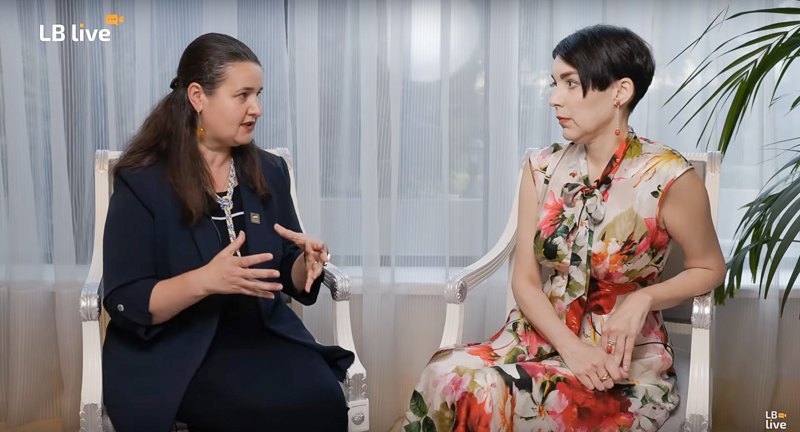
We are working in all directions, because we understand that we need weapons now, and we will still need them in a year, two years, five years. God willing, our joint pressure, sanctions, and everything else will lead Putin to understand that he cannot win this war and will begin to negotiate seriously. But even in that case, we understand that Russia's aggressive intentions will not disappear. Therefore, building up our Armed Forces is the number one priority now, during the war, and it will definitely be the number one priority in peacetime.
An important point is the delivery time. I understand that not everything can be said, but Trump has publicly stated more than once that some of this equipment is ready for shipment. Meanwhile, European partners say ‘six to eight months.’
First, deliveries are ongoing. Indeed, this is not a matter for public discussion, but the Ministry of Defence, the General Staff, colleagues who work with our partners, including in European structures, and who are involved in this, know that the fastest programmes from America are presidential allocations. But do not forget that the USAI and FMF packages were allocated in 2022–2024. These are arms procurement packages, they went into production, and some of the things we are receiving now are what was ordered two years ago, a year ago, three years ago. That is why I said that the number one priority is the rapid delivery of what needs to be delivered now, its maximum acceleration.
As for new packages, what will be ordered from Russian... By the way, that's a good point, because we need to confiscate Russian assets and use them to buy weapons.
However, don't forget that the arms industry has a wonderful opportunity called ‘queue replacement’. We worked very successfully in this direction last year and this year, when, even when buying now, it is possible to receive not when the queue comes, but to agree with friendly countries — with the help, of course, of the manufacturing country — that we will receive something first and that country will give us its place in the queue.
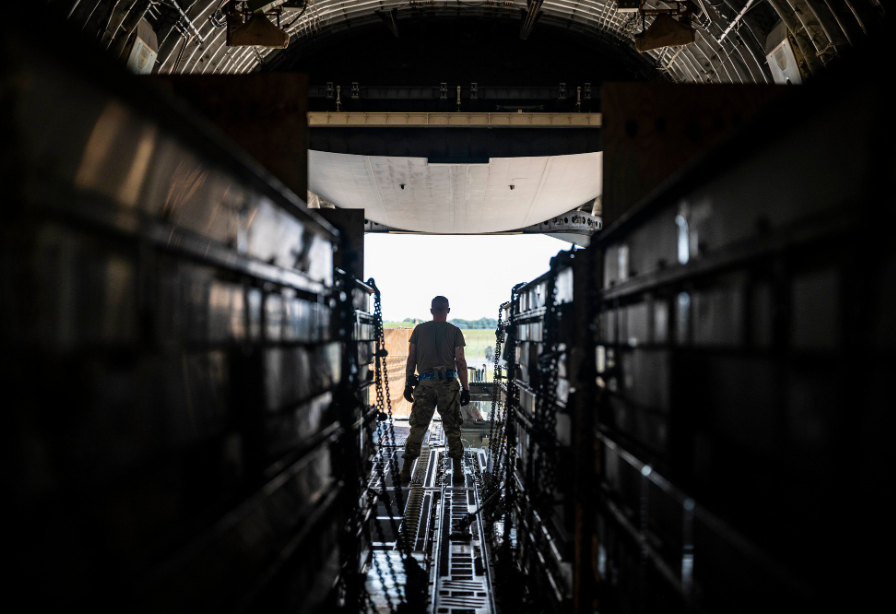
There were fears that the situation with Israel would divert attention from Ukraine...
No, look, there are many capabilities that overlap in many countries. There are many capabilities that only we need. Therefore, I think that political will and specific agreements will always be the determining factor.
Oksana, thank you very much for this conversation, but I can't help but ask one last question. The president said he wants you to stay on the team and work in Kyiv. You will be in the United States for some time, but is there already an understanding of what you will do next?
Sonya, I am currently working as an ambassador 24/7 and am focused solely on that. When the time comes for a replacement and handover, then we will think about it.
